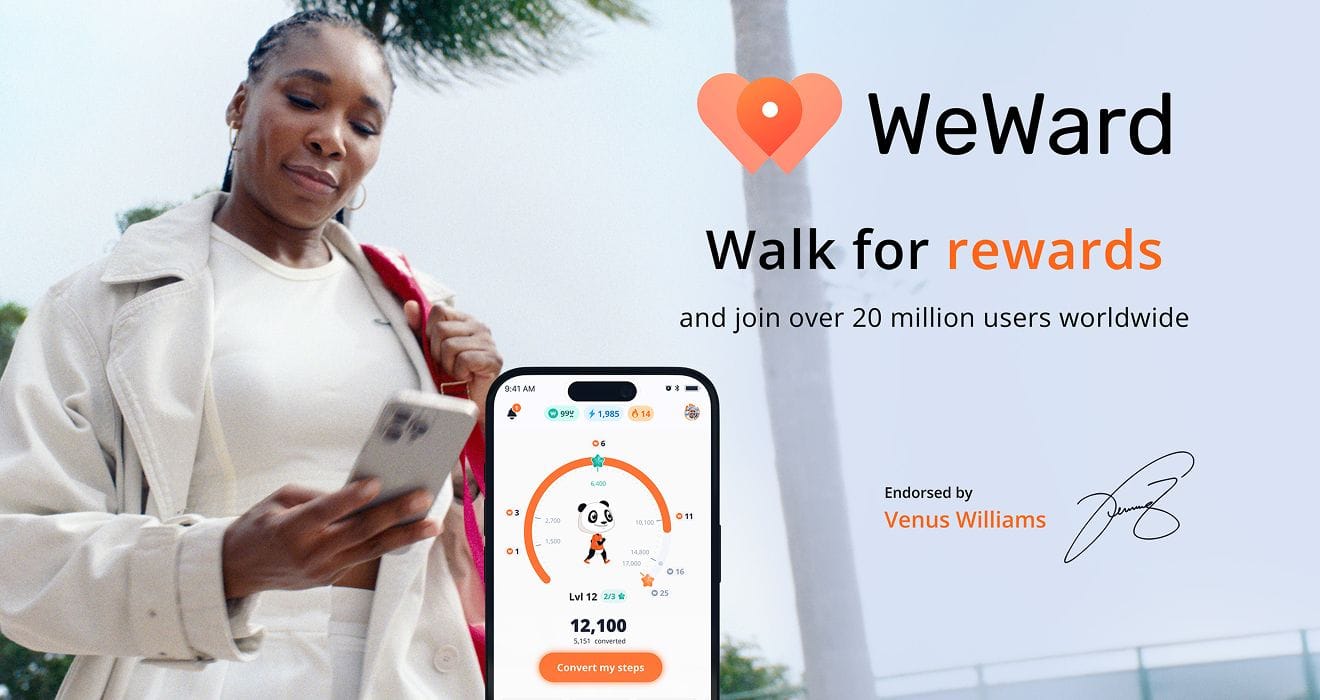Is Weward App Legit (2025)

Users receive rewards through walking apps, which create doubts about whether these incentives represent genuine rewards or serve as marketing strategies. The French "walk-and-earn" application Weward enables users to earn points through walking, which they can exchange for vouchers or cash transfers, or charitable donations.
The application Weward stands out as a prominent example of this specific market segment. In the following section, I’ll be explaining to you Weward's functions and operational methods, and evaluating the app's performance against its stated goals.
What Weward Is and How It Works
Weward functions as a pedometer system that rewards users for their physical activity. The app tracks user movement while converting physical activity into Wards, which users can exchange for e-vouchers or bank transfers, or charitable donations.
Weward also works as a dual system, which enables users to track their health and receive motivational support. The system enhances walking experiences by using interactive elements that motivate users to increase their physical activity for obtaining small financial incentives and gift rewards. Weward presents its website features through a personalized pedometer and an explore/map function and partner offers, and social cause donation options.
The application collects your phone and connected fitness device movement data to create Wards based on rules and promotional events within the app. Users can get additional Wards through daily quests and challenges, and by referring friends and completing offers from partners and specific locations.
Weward then shows users available redemption choices and minimum requirements for redemption. The gift card availability and minimum payout threshold, and payment options between regions and time periods differ. If you want more details on how the app work, I recommend that you check out the Play Store listing, together with the company FAQs, as they will further explain in detail how the app collects activity and location data to enable these features.
Is the App Legitimate?
Based on my research and many users’ experiences online, the short answer is yes. Weward appears to be a legitimate product rather than an outright scam. The company operates as a well-known French startup that serves millions of users through established terms of service and privacy documentation, and operates a working reward system. The app stores display both high download statistics, and users have given the apps mixed to positive ratings, and some users have confirmed they received real payouts.
Yet, the term “legitimate” does not equate to “lucrative” or “perfect.” Users through review platforms and reports have shown that the system takes time to generate payments, and the requirements for cashouts can shift, and the earnings do not match the amount of time users spend on the platform. The app can operate correctly, but users should understand that it generates only small amounts of money, which should not be considered a dependable source of income.
The Trustpilot reviews combined with user posts reveal that many casual users are satisfied, but various users have complained about poor customer support and changes to gift cards, and a longer time needed to reach cashout limits. The reliability of Weward depends on the specific situation, but it tends to function as expected within its designated boundaries.
Privacy and Data Use
As with most “get-paid-to-move” apps, one of the key tradeoffs with Weward involves data. Weward needs motion sensor access to track steps precisely and deliver location-specific challenges and partner rewards, which also require location data in certain areas.
The company reveals its data collection practices through its privacy policy and FAQs to operate the service and provide personalized offers. The Play Store listing also discloses that the app may collect or share location and personal information.
Users need to handle Weward in the same way they do other data-dependent services by checking privacy options and choosing location tracking settings, and reading service terms about data handling. The privacy tradeoff is a matter of personal preference for most users since they value the small rewards and motivational benefits more than their privacy.
Bonus: Scrambly
Here is a bonus for you: the app Scrambly recently added a walking feature that lets iOS users earn points for their daily steps in addition to its usual surveys and mini-games. After connecting a step counter or fitness tracker, the app rewards movement with redeemable points for PayPal cash or gift cards.
Similar to Weward, the earnings are small but steady, making it an easy way to collect bonuses while staying active. It’s a casual all-in-one rewards app that now gives a little extra credit for every step you take.
Final Thoughts
Weward is best understood as a legitimate motivational tool with a built-in micro-reward system. The system operates as described while being backed by an actual company that multiple users have verified for successful reward redemption.
All users of apps such as Weward should understand that payment rules can change, and multiple members experience delayed rewards and insufficient help from the platform, according to the system. Weward provides an excellent solution for people who want to earn small rewards for their walking activities. Users will probably earn less money from walking apps than they expect to receive.
Weward operates as a legitimate platform that enables users to earn money through physical activity, yet it functions best as a motivational tool rather than a substitute for actual employment.
